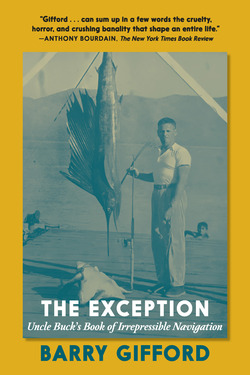On the twentieth anniversary of the publication of Barry Gifford's international bestseller Wild at Heart, as well as the anniversary of the Palme d'Or-winning film adaptation by director David Lynch, Sailor & Lula: The Complete Novels presents all of the novels and novellas that comprise the saga of Sailor Ripley and Lula Pace Fortune, "the Romeo and Juliet of the South": Wild at Heart, Perdita Durango, Sailor's Holiday, Sultans of Africa, Consuelo's Kiss, Bad Day for the Leopard Man, and The Imagination of the Heart.
Collected in
The Best of Barry GiffordBecause Sailor was a shade more sudden than that creep Bob Ray Lemon he gets punished for it. The world is really wild at heart and weird on top, Lula thought.
Introducing Three Cheers: a new feature on the Seven Stories Blog. In this feature, Seven Stories authors dish on three books that helped to mold them over the course of their careers. Check out Barry Gifford's choices below!
by Barry Gifford
Grande Sertao: Veredas (Translated into English as The Devil to Pay in the Backlands by Harriet de Onis). Certainly the greatest of all Portuguese language novels, a truly transformative novel; a unique, surprising narrative that rivals Don Quixote for creativity and meaning. Written by Joao Guimaraes Rosa, Brazilian professor and diplomat.
The Adventures & Misadventures of Maqroll the Gaviereo (Translated from Spanish by Edith Grossman) by Alvaro Mutis, a Colombian raised in Belgium and Colombia and Mexico, best friend of Gabriel Garcia Marquez, who called Mutis the finer writer. Marquez was correct: Mutis’s Maqroll novellas are the finest kind of literary adventures. A vastly underrated if not mostly unknown (in the English-speaking and -reading world) master of prose and poetry.
The Collected Novels of Jean Rhys Another mostly undervalued (and misinterpreted) writer. Her novels After Leaving Mr. Mackenzie and Good Morning, Midnight (quote from Emily Dickinson, I believe) are especially good. She did not waste words: taught me how to be concise and direct without sacrificing intent and meaning. Hated being taken up in 1960s and ‘70s by feminists—resented is better word. Once a mistress of Ford Madox Ford’s, she picked up on what the big guns of the ‘20s and ‘30s had to say (Hemingway, Conrad, Pound, et al) and in my opinion outdid them all—except maybe Conrad.



























